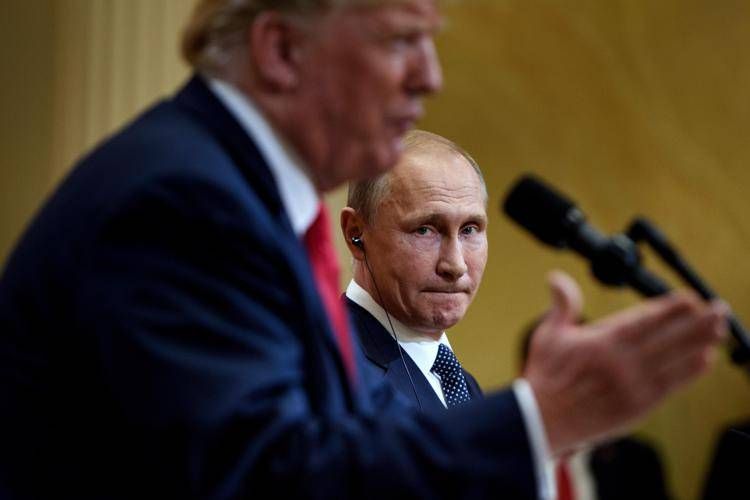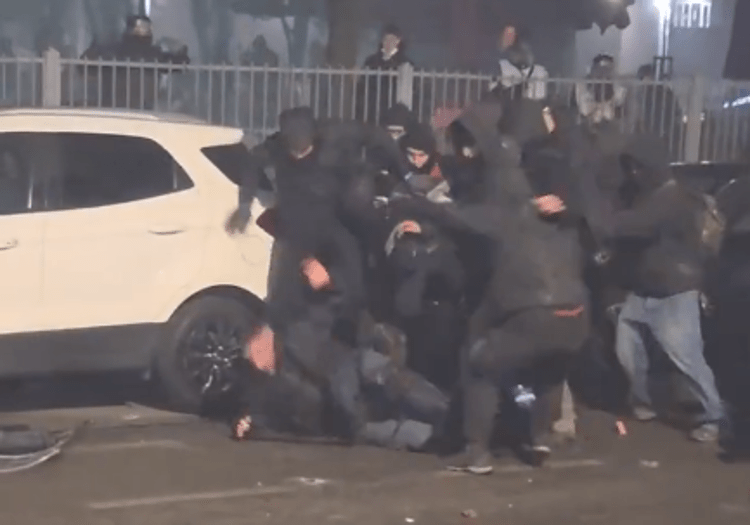
Trump-Putin phone call, shock in Europe: ‘US is selling out Ukraine’
Two-hour interview between the US president and the Kremlin leader. Concerns grow in Europe and Kiev: the feeling is that Ukrainians are being ‘sold out to Moscow’s interests’
Has Donald Trump really abandoned Ukraine? This is the question posed by the Financial Times in the aftermath of the long phone call between the US president and Russian leader Vladimir Putin. A conversation that lasted more than two hours and raised alarm among European allies and Ukrainian officials, more than three years after the start of the large-scale Russian invasion.
According to former US ambassador to Ukraine Steven Pifer, now an analyst at the Center for International Security and Cooperation at Stanford, the call represents ‘a victory for Vladimir Putin’. Pifer argues that the talks effectively sanctioned the absence of a short-term ceasefire and the blocking of new sanctions against Moscow, giving Russia room to continue military operations. This reading is also shared by Bill Taylor, former ambassador to Kiev, who argues that Moscow can continue to negotiate interlocutorily while the war on the ground continues.
Yuri Ushakov, Putin’s foreign policy advisor, described the tone of the exchange as ‘so cordial that neither of them wanted to end the conversation first’. But it is mainly the content that is puzzling. According to the Financial Times, ‘Ukrainians and allies in Europe felt abandoned’.
Only a few days ago, Trump had spoken to European leaders threatening new sanctions against Russia in the absence of a ceasefire. But the phone call with Putin marked a reversal: the American president announced that the United States would step aside in the role of mediator, leaving the parties to begin preparations for direct negotiations ‘immediately’.
A move that, according to a European diplomatic source quoted by the British newspaper, has left Western partners ‘stunned’, who are worried that Trump may reach an understanding favourable to the Kremlin, sacrificing Kiev’s interests.
Peter Slezkine, an analyst at the Stimson Center, sees the manoeuvre as an attempt to unblock a conflict that has been bogged down for years, even at the cost of putting heavy pressure on both sides. Andrew Weiss of the Carnegie Endowment for International Peace, on the other hand, observes that Trump seems to be aiming at normalising relations with Moscow as a priority objective, subordinating everything else.
Meanwhile, on the ground, Russia continues to advance. According to Rob Lee of the Foreign Policy Research Institute, Moscow is counting on consolidating territorial gains especially in the Donetsk and Luhansk regions, where it has not yet reached its minimum targets. With summer approaching, there are fears of an intensification of the offensive before any concrete negotiations.
In European capitals, fears are growing that the new American posture could change the strategic balance and jeopardise not only Ukraine’s security, but also the West’s credibility in managing the crisis.
THE LATEST NEWS
(Photo: © AndKronos)
-

 News20 ore ago
News20 ore agoSciopero trasporti 26-28 febbraio 2026: voli e treni a rischio
-

 News22 ore ago
News22 ore agoFamiglia nel bosco di Palmoli, il padre: “Accetteremo vostre regole pur di riavere i bimbi a casa”
-

 Flash22 ore ago
Flash22 ore agoAggressione con mannaia nel quartiere Gianicolense a Roma
-

 Flash21 ore ago
Flash21 ore agoDonna trovata morta in casa a Ostellato





















